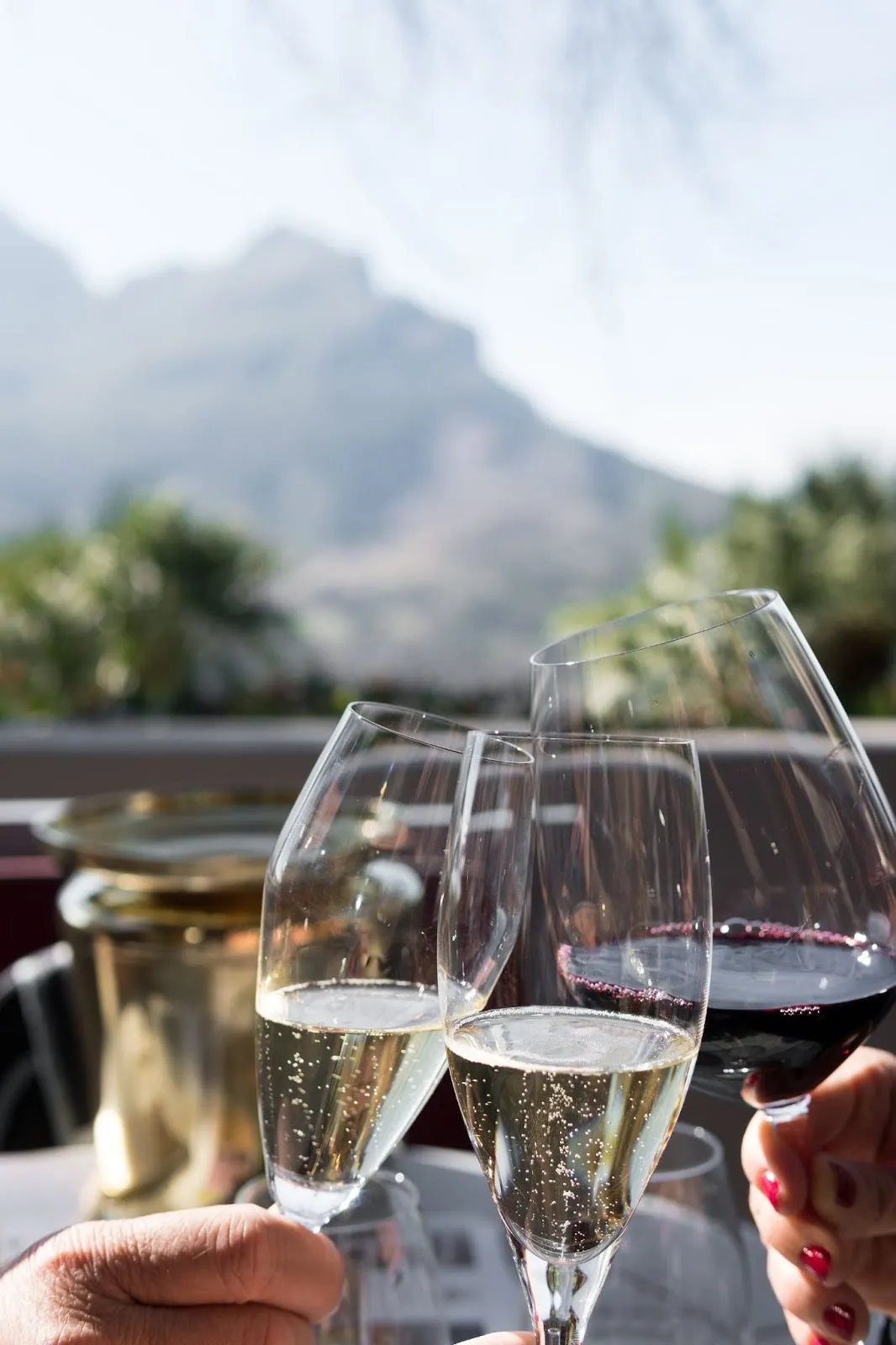- Wine Color/Type
- Top Occasions
- Unique Wines
- Surprise Me!
Cap Classique Day: Discover and Enjoy South Africa’s Finest Bubbly
If you love sparkling wines, you might want to mark September 1 on your calendar. That’s the day when South Africa celebrates its own version of Champagne, known as Cap Classique. Cap Classique is a term that refers to sparkling wines produced using the traditional method, which involves a second fermentation in the bottle.
The Cap Classique wines also showcase the creativity and innovation of South African winemakers, who have adapted the traditional method to suit their local terroir and climate.
Enjoying Cap Classique wines in South Africa
(Source: Unsplash, Matthieu Joannon)
The history of Cap Classique?
Cap Classique was first introduced in South Africa in 1971, when local winemakers began experimenting with the methods used to make champagne. The first Cap Classique wine was released in 1973, under the name Kaapse Vonkel (“Cape Sparkle”).
Since then, Cap Classique has grown in popularity and quality, becoming one of the most prestigious and versatile wines from South Africa. Today, there are more than 250 producers of Cap Classique in South Africa, offering a wide range of styles and varieties.
Cap Classique is not only a delicious drink, but also a reflection of South Africa’s history and diversity. The name Cap Classique pays homage to the Cape of Good Hope, where the first vines were planted by European settlers in the 17th century.
How is Cap Classique made?
All Cap Classique wines are produced using the traditional method for creating sparkling wines, meaning the second fermentation takes place in the bottle the wine is sold. Yet similarities stop there, as Cap Classique is a widely diverse category, free of appellation regulations that govern other popular sparkling wines like Champagne, Crémant or Prosecco.
Cap Classique can be made from different grape varieties, such as Chardonnay, Pinot Noir, Pinot Meunier, Chenin Blanc, Sauvignon Blanc, and Pinotage. The wines can be white, rosé, or red, and can have different levels of sweetness, from brut (dry) to demi-sec (sweet). Some Cap Classiques are also vintage-dated, meaning they are made from grapes harvested in a single year. Others are non-vintage, meaning they are blended from different years.
Is Cap Classique the same as MCC?
MCC refers to the production method of the South African sparkling wines, as it means “Méthode Cap Classique”, in response to the French “Méthode Champenoise”. It refers to sparkling wines produced with a second fermentation in bottle. “MCC” or “Méthode Cap Classique” is always written on the bottle, to indicate the qualitative production method. Yet we say “This is a bottle of Cap Classique”.
However, dear VinoVosser, don’t stress. Oftentimes the two terms are used interchangeably.
How can I celebrate Cap Classique Day?
So how can you celebrate Cap Classique Day and enjoy this sparkling wine? Here are some suggestions:
Get a Cap Classique
- Browse VinoVoss to buy a bottle of Cap Classique and treat yourself to a special occasion. You can toast to your achievements, goals, or dreams with a glass of bubbly.
Invite some friends and family
- Host a Cap Classique party at home and invite your friends and family. You can serve Cap Classique as an aperitif or with a meal. Cap Classique goes well with many dishes, such as seafood, cheese, sushi, salads, desserts, and more.
Share the joy
- Share your Cap Classique experience on social media and spread the word about this amazing wine. You can use the hashtag #CapClassiqueDay and tag the producers or brands you like.
In the meantime, be sure to check out these expert Cap Classique recommendations on VinoVoss.
Simonsig Kaapse Vonkel Brut Rosé
Muratie Lady Alice Methode Cap Classique Rosé
Whatever you do, don’t miss this opportunity to celebrate the sparkling wines of South Africa on Cap Classique Day. You will be amazed by the quality and diversity of Cap Classique and discover why it is one of the best sparkling wines in the world.
Cheers!
Evmorfia Kostaki
Latest articles



